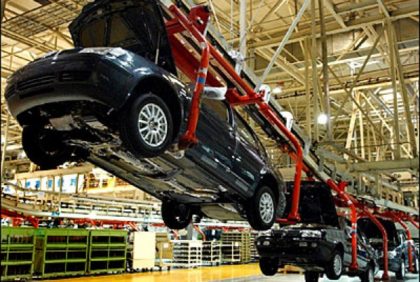
info.afrindex.com
China-Africa Trade Information Service

info.afrindex.com
China-Africa Trade Information Service

Image from The North Africa Post
Morocco has a geographic area of 446,550 square kilometers. Rabat is Morocco's national political, cultural and transportation center, but the largest city by far, as well as the business and economic capital, is Casablanca, located 85 km from Rabat.
While 2018 marked a deceleration from the economic growth of 2017, Morocco's overall picture continues to look stable: the IMF forecast GDP growth of 3.2% for 2018, a substantial figure, and projected growth of 3.2% for 2019. A number of key developments are expected to support economic growth in coming years. A rapidly improving business environment and infrastructural base, the gradual liberalisation of the local currency, and increased investment into export-oriented industries are all set to raise living standards and drive the emergence of a large national middle class.
Between 1985 and 2016 industry contributed an average of about 19% to GDP, and in 2017 this increased, raising the sector’s contribution to around 25% of GDP.
The country's industrial offering is diverse and includes products in the automotive, electronics, textile, offshoring, pharmaceuticals, aerospace, chemicals and electronics segments. The sector will continue to play an integral role in Morocco's economy and is set grow an additional 5% by 2022. However, it must first diversify its offering, which could include further shifting to high value-added manufacturing such as aerospace or automotive, and increasing overall exports.
The kingdom also has plans to leverage its textile industrial capabilities to become a global sourcing centre for fast fashion and denim. The retail sector in Morocco is expected to continue to grow due to demographic shifts. In addition, higher internet penetration rates and the increasing popularity of online shopping are all levers for sector growth.
Lacking the hydrocarbons reserves of some of its neighbours, Morocco has had to rely on imports of fossil fuels to develop its economy. This has left the country exposed to fluctuations in global energy prices and has impacted the kingdom's budgetary position. However, the country has taken measures to reduce dependence on energy imports. Over the last several years the kingdom has been able to develop know-how in the renewable sector, expand its clean energy production capacity, and establish a new industry that is helping to attract investment and create jobs. All this has helped to inject dynamism into the kingdom’s energy sector, and this momentum is likely to continue over the coming years.
Large public investment in Morocco's physical infrastructure in recent years has contributed to the expansion of domestic transport and logistics. The construction of 1800 km of new expressways, expansion of the rail network, and development of logistics and industrial zones has led to a sharp increase in the number of active companies in transport and logistics. Currently, the sector directly contributes €3.6bn, or 4%, to the country's GDP, and provides jobs to some 1m people.